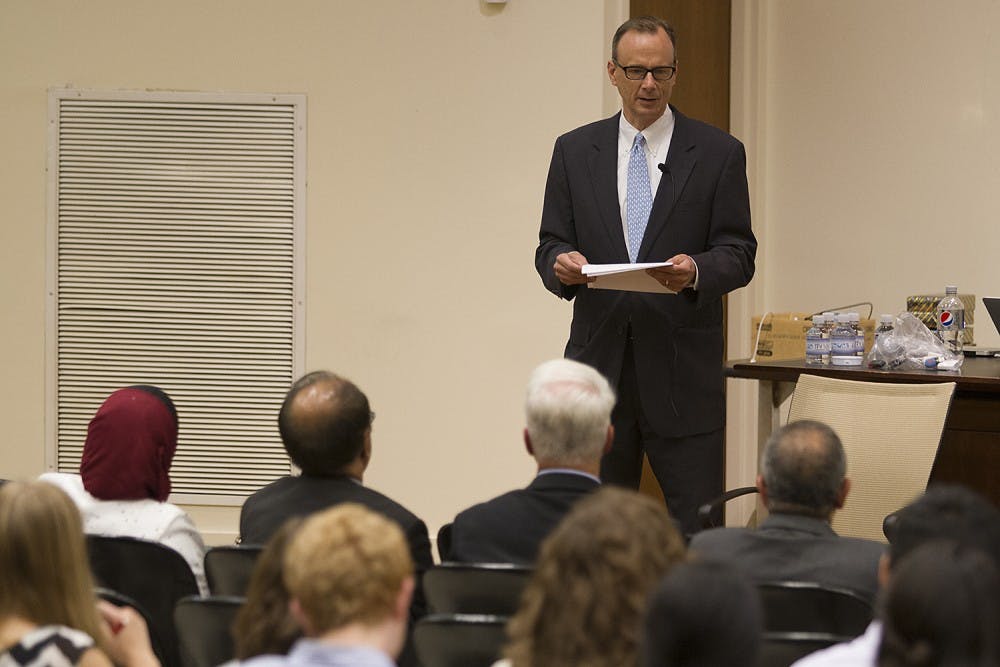The UNC School of Medicine hosted a conference Tuesday for members of the school’s faculty, a UNC medical student and five visiting faculty members from Baghdad University to discuss ways to improve medical education in Iraq.
“We hope this is the beginning of joint cooperation between Baghdad Medical School and (UNC),” said Hilal Al-Saffar, head of medical education at Baghdad University . “We are extremely optimistic that the future is shining for both of our medical schools.”
In March, UNC medical student Essraa Bayoumi was invited to speak with students from Baghdad University about changes to the Iraqi school’s curriculum.
She said students wanted professors to fill more of a facilitator role and expressed interest in smaller faculty-student ratios — strategies UNC’s School of Medicine currently practices.
The students also said they wanted to replace exams with smaller, more frequent evaluations like quizzes.
“That keeps you on your toes but doesn’t focus your education on just passing tests,” Bayoumi said.
The fourth-year medical student said she became involved in the program after being approached by Dr. Randall Williams in March. Williams, who works in Raleigh, has been working to improve medical education in Iraq for 10 years.
“I was thrilled,” Bayoumi said. “Coming into medical school, my vision was to be able to expand my knowledge of medical practice and the education system beyond the local community.”




